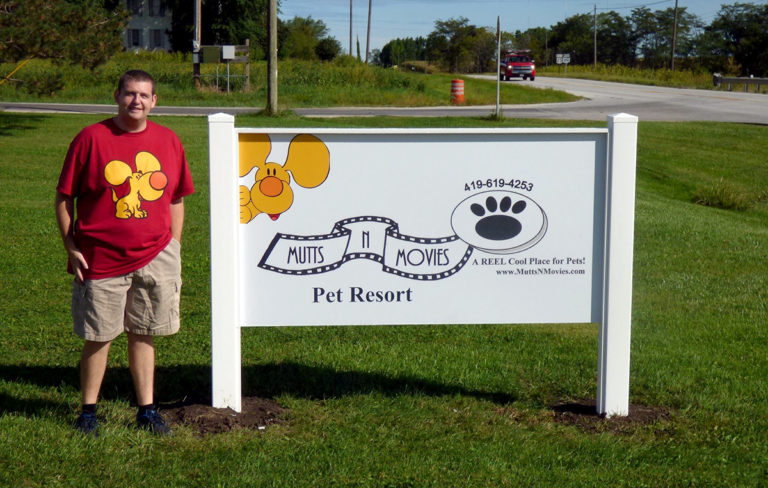Autism & Communication Disorder – A Journey With Marcus
The picture of the handsome soccer player attached to this narrative is my eleven-year-old son Marcus. To look at his handsome face, one would never believe the story behind this sweet-spirited young man. At this point it seems a little surreal, but to borrow an old cliché, “We’ve come a long way, baby!”
My pregnancy was normal, c-section delivery was normal, and we took home a normal, beautiful, black haired eight and a half pound baby boy. Marcus progressed normally with physical milestones, but we didn’t get the language development. Also, food issues arose. I couldn’t get him to eat regular baby food. When we took him off the bottle, he refused to drink milk from a cup. Only water. Finally, he would eat some organic baby food. We began to have behavior issues. Our pediatrician referred us to a rehabilitation center in town for evaluation when he was eighteen months old. We even went to an ear, nose, and throat specialist for tubes in case it was his hearing. Marcus began attending a language development preschool at the rehabilitation center when he was twenty-three months old. My mother called it “obedience school” and in many ways it was. He needed it. We were on a waiting list for private speech, and we even started occupational therapy. Marcus was a handful, but thankfully he was a good sleeper. Also, I was fortunate to have a good day care situation and the support and help of my wonderful mother. She would pick up Marcus and take him to preschool and the sitter so I could continue to teach.
At three our doctor sent us to the Meyer Center in Houston for a developmental evaluation. The news we received was devastating. Marcus was diagnosed with a communication disorder with autistic qualities. The term pervasive developmental delay was presented to us. Worse case scenario we were told was when he was sixteen he would be mentally eight years old. We were told to continue what we were doing and come back in a year for a re-evaluation. When we returned home, the preschool teacher and speech teacher vehemently disagreed with the worse case scenario, and did not want us to give up hope. Marcus was saying a few words and had some splinter skills. But, he hated change of any kind, loud noises made him shake all over, foods were a real issue, he wouldn’t look at you, and when eating out he might end up on the floor under the table. Haircuts were a real trip, but luckily I found a very patient barber. Cutting his fingernails and toenails required my husband holding him down with me doing the cutting. If something upset him, he would go to the floor and want to repeatedly bang his head. Toilet training was a major issue. I begin to pray, “God, if only we can get him toilet trained, I won’t ask for anything else.” The last thing I would think of when I was drifting off to sleep was “I have an autistic son. What am I going to do? The future looks horrible for him, my husband, older son, and me.” The first thing I would think of when I woke up was the same thing. A weighted pall hung over our household. I can see why couples who have special needs children many times will divorce because it takes such an emotional toll on the whole family. Oddly enough, our older son, who was ten years older than Marcus, was in the gifted and talented program at school and was an excellent athlete. We were operating at opposite ends of the spectrum. I learned to not think so far ahead because it frightened me so. It was at this point that Donna, our speech therapist, began to talk to us about NACD. She had a young deaf client who worked with NACD. She gave me some information, and my husband and I began to read. We were so encouraged by what we read, I called and talked to Lyn and ordered the tapes and the referral forms. My husband and I would listen to the tapes on the way to work in the mornings. That seemed the best time to have a few minutes with no distractions. I filled out the forms and sent them to Utah, and waited for an evaluation appointment with Bob. Marcus, my husband, and I flew to Utah for our evaluation. We were given specific things to do for Marcus. It was so exciting to actually have specific things we could do to help our son. It was hard, and Marcus didn’t like some of the things we did, but we persisted. We did a video evaluation at three months, and then flew back at six months to Utah. Our plane was delayed out of Dallas, so we needed to kill some time and eat. A Friday’s restaurant was at the airport terminal, and it was noisy. My husband and I looked at each other and said, “Well, do we try Marcus with the loud noise?” We actually walked in, the hostess seated us, we ordered, we ate, we paid our bill, and we walked out WITHOUT an incident. That was the first time. We had been on Somonas Sound therapy at that point for a while as well as program for six months. I will never forget that defining moment. We were thrilled to learn that a NACD regional office would be open in Texas. Working with NACD was something we most definitely wanted to continue.
That has been almost eight years ago. We’ve climbed many mountains, and we still have mountains to climb. Marcus is in the fifth grade and is and has been in the regular classroom along with special education classes since kindergarten. We refused for him to be in an autistic classroom. I told the twelve people in the first ARD meeting on Marcus in kindergarten that Marcus had to live with us in the real world, and if I had to drag him kicking and screaming into it, he would become a part of it. We requested and got a personal aide for him with the understanding that the goal was eventual independence. We were blessed with a wonderful aide who was with him from kindergarten through fourth grade. She continues to do private tutoring with him each week. She loves him, and he dearly loves her. Our work with NACD has also provided us another evaluative source to use with the school district. With a special needs child, it is always good to have your own sources outside of the school. My husband and I feel without NACD we would definitely not be where we are today.
Well, you ask, where are we today? Marcus is in the fifth grade at a large intermediate school in our city. I was a nervous wreck about the change to intermediate school. I laid a lot of groundwork with getting things worked out, but he has done pretty well. At the beginning of the year I moved him out of resource reading and into the regular classroom, and at semester I moved him out of resource language into the regular classroom. Those two classes were the last special education classes he was in. He has a wonderfully supportive regular education teacher in those classes. He is allowed some modifications and Content Mastery support as needed. Communication with his teachers is paramount, and I do not hesitate to ask things or make requests of his teachers. However, they know that I will do anything to help him be successful in their classroom and to help them help him. It is a partnership. He has played on a soccer team since he was five. He plays baseball and has even pitched an inning and gave up no runs and struck out one. Marcus takes piano lessons, and he has even played two memorized pieces in the school talent show. He has no qualms about performing in front of a group. Golf is probably his best sport, and it is one he shares with his father, brother, and mother. He can chip! Marcus takes art lessons, and has experienced some modest success. He won third place in our community art show in grade five. If you ask him if he wants to take a trip, he is ready to roll. He loves to travel, and being so visual he just soaks things in. He has been to twenty-five states and to one foreign country. He plans to collect all fifty states on his travels. He is a joy to travel with these days, unlike the first trip to Florida he spent on the floor of the plane in front of our seats kicking and screaming until he fell asleep. He even was elected to the student council in fourth grade. He ran in the fifth and lost, but he handled it beautifully. He acolytes at church and does it like a pro. He has had two large, successful birthday parties at a bowling alley. Our biggest problems to date are still language issues, social issues, and voice volume. These are challenge, but we are working on it. Plus, all are so much better than they were. Marcus is still a work in progress, but then all kids are. He is happy, moving forward, and we continue to stretch him as much as possible. Math is his strongest subject, but he loves history too. His reading is moving along, too. I am a firm disciplinarian. I mean what I say and I say what I mean. Marcus knows that I will deliver on consequences as well as rewards. I am very consistent in the discipline area. This has been very important to his progress. He wants to please and do well.
We’ve been blessed with wonderful people to help us in our journey with Marcus. He is truly a “village” project. NACD gave us the hope and tools to work with our son. Marcus’s baseball coach, who happens to be a psychologist that teaches at a university nearby and does consulting and evaluations of autistic children with some area school districts, has told us that Marcus does better than 85% of any of the autistic kids he has ever seen. It has been a journey, but a journey that isn’t over yet. We still have many mountains to climb, but I don’t think they are quite as high as where we have been.
Reprinted from the Journal of The NACD Foundation (formerly The National Academy for Child Development)
For an update on Marcus please go to: https://www.nacd.org/autism-spectrum-marcus-ten-years-later/





